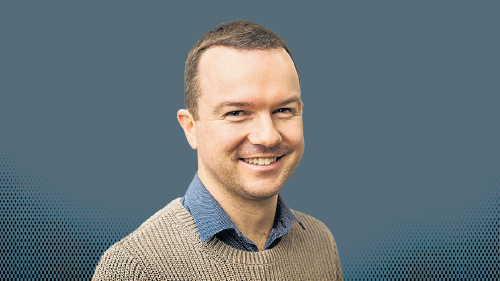
Religious freedom cannot operate without regard for the law of the land, Joseph Assaf wrote in his excellent autobiography, In Someone Else's Shoes. Assaf, who arrived in Australia from Lebanon in 1967, worked in factories at night and studied during the day to become a successful businessman, husband and father and is best known for starting the Ethnic Business Awards in 1988.
Subscribe now for unlimited access.
or signup to continue reading
I returned to Assaf's book this week in the wake of events surrounding the shooting of finance worker, Curtis Cheng, at Parramatta police station; the escalation of what our politicians call radicalisation of youth and recent demonstrations like those at Bendigo last weekend and Melbourne last month over a raft of issues including multiculturalism and our immigration policies.
In George Megalogenis's recently released book, Australia's Second Chance, he writes strongly about our migration history. "The migration program was not always consensual - Labor and the Coalition dissented when they thought it would help them politically - but it was peaceful and successful".
That dissent can be measured first by John Howard's famous statement in his 2001 re-election campaign: "We will decide who comes to this country and the circumstances in which they come.
Not dissimilar in fact to the statement 50 years before by Arthur Calwell, Australia's Immigration minister in the Chifley Government, which led the successful post-World War Two migration scheme: "So long as the Labor Party remains in power, we shall insist on our sovereign rights to determine what people shall make up our population".
So, where do we go from here? The Parramatta mosque leader told his congregation, "we must respect this country; if you don't like Australia leave".
Assaf put it his way: "Those who support cultural diversity must speak up against any cultural degradation whose purpose is not to build, but to destroy; not to contribute, but to deplete; not to participate, but to be exclusive. They must speak up against it, regardless of whether it is triggered by an alien or a local".
Those of us who think this is just another problem for our politicians to solve would be wrong. It is our problem. The column has argued for some years now that throwing migrants in a detention centre or suburb, be they refugees or registered migrants, without assimilation and communication, is fraught with concerns. There are so many groups who can assist with re-settlement, education and direction and they include retirees, service clubs and especially women's organisations, cultural groups and sports clubs.
There is a strong argument for regional cities and towns to take the lead in these roles. There is much to do; but it needs to be done with rational debate.
A reviewer in The Saturday Paper of Megaloginis's book wrote: "His key argument is, a retreat into a fortress society is rarely successful".
Remember, we are kids
OUTSIDE the home team's dressing room at a recent Canberra under 17 AFL match we attended was this sign: "Please remember! We are kids, Our coaches are volunteers. The umpires are human. We do not play in the big league".
In a recent DA editorial, Federal Sports Minister, Sussan Ley, expressed her desire to encourage more kids to play organised sport.
Ms Ley might use the above message to advance her cause - sport should be fun as well as being healthy.














